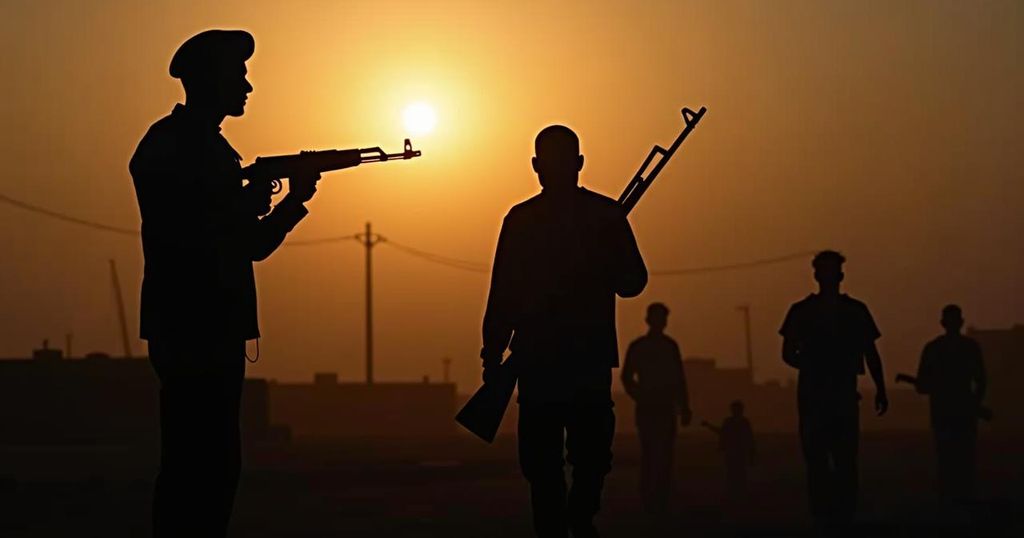Libya has detained militia leader Mohamed Bahroun following the killing of infamous human trafficker Abdel-Rahman Milad. Milad, formerly a leader in the Libyan coastguard and a UN-sanctioned figure, was accused of trafficking and deliberately sinking migrant boats. His assassination has sparked debates on the intertwined issues of crime, migration, and state collaboration, particularly in relation to Italy’s role in managing migration flows. Rights groups criticize the complicity of authorities and the dire conditions faced by returned migrants.
The Libyan authorities have arrested militia leader Mohamed Bahroun and one of his aides in connection with the assassination of notorious human trafficker Abdel-Rahman Milad, also known as “Bija,” in Tripoli. Milad, a former leader of the Libyan coastguard, was wanted by the United Nations for running a trafficking organization and was previously incarcerated on related charges. He was gunned down while seated in a vehicle, raising significant scrutiny over the circumstances surrounding his death. Milad’s activities, particularly his alleged involvement in intentionally sinking migrant boats, have drawn international condemnation. He was implicated in a 2017 UN security report and had been arrested in the past after being identified at a meeting with Italian officials discussing migration control strategies. Despite his controversial past, Milad was released in 2021 and had reassumed a position of authority within the Libyan coastguard. The ongoing collaboration between Libya and Italy to manage migration has faced harsh criticism from rights organizations, which argue that such arrangements have led to abuses of migrants returned to Libya. Anas El Gomati, head of the Sadeq Institute, asserted that Milad transformed rescue operations into ransom schemes, exposing migrants to exploitation in detention centers. The situation has highlighted the broader dysfunction within Libya’s security and migration management systems.
This article addresses the complex issue of human trafficking and the processing of migrants in Libya, a critical hub for individuals from Africa and the Middle East attempting to reach Europe. The involvement of militia leaders and governmental complicity complicate the landscape of migration in the region. Abdel-Rahman Milad’s history exemplifies the intersection of organized crime and state power, particularly in contexts where the support of international partners such as the European Union has led to questionable outcomes regarding human rights. The controversy surrounding Milad underscores the challenges faced in curtailing trafficking operations while addressing the humanitarian needs of migrants.
The detention of Mohamed Bahroun signifies an ongoing struggle within Libya to address the intricate relationship between militia groups and human trafficking networks. Milad’s killing raises questions about the accountability of state and non-state actors in humanitarian crises, drawing attention to the need for reforms in Libya’s handling of migration and trafficking. As Libya continues to serve as a primary transit country for migrants, the global community must reassess its engagement strategies to ensure the protection of vulnerable populations against exploitation and violence.
Original Source: www.euronews.com






